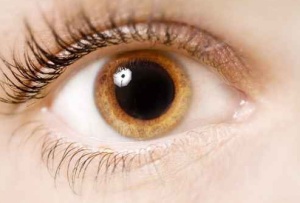| Download the free brochure: “Autism And Adrenal Stress” |  |
Autism and Adrenal Stress
An autism spectrum disorder (ASD) places the individual, the parents, and siblings under enormous adrenal stress. Prolonged periods of stress can fatigue your adrenal glands, resulting in biochemical and cellular changes which can affect many body systems, including immune function, blood sugar balance, energy production, thyroid function and hormone balance. The main purpose of the adrenal glands is to respond to stress and is known as the “fight or flight” response. These glands react to every kind of stress whether physical, emotional, psychological, hormonal, thermal, or biochemical. The function of every tissue, organ and gland in our body is affected by adrenal hormones.
The adrenals are two small glands, each weighing 3 to 5 grams, located above the kidneys, and are composed of two separate functional entities, each responsible for producing and releasing specific stress hormones. The outer zone, or cortex, accounts for 80% to 90% of the gland, and secretes the hormones, Cortisol, DHEA and Aldosterone. The inner zone, or medulla, comprises 10% to 20% of the gland, and secretes the hormones epinephrine and nor-epinephrine.
Excessive cortisol production can lead to a condition called Cushing’s Syndrome and has the following associated symptoms:
- Stretch marks
- Easy bruising (also associated with low Vitamin C levels)
- Extra hair growth
- Loss of muscle mass
- Emotional problems such as depression
- Irregular periods
- Poor bone growth and repair
- Abnormal thyroid function
- Addison’s Disease (which has the following associated symptoms such as low energy, joint pains, difficulty waking in the morning, low energy levels, weight loss, diarrhea and electrolyte deficiencies).
Aldesterone is the salt retaining hormone. Deficiencies in aldesterone may lead to low blood pressure and a high resting pulse as well the desire to eat salt. Low aldesterone will increase sodium loss via the kidneys and will reduce blood volume, causing low blood pressure, cravings for salt, and a reduced supply of oxygen and nutrients to the brain.
 Excessive stress may cause an inability to appropriately respond appropriately to stressors, and may be the causative factors to many physical and sensory symptoms in children autism spectrum disorders. Sensory issues refer to how the brain processes and reacts to the environment and may lead to hyper-sensitivities (over sensitivity) or hypo-sensitivities (under sensitivity) to sensory stimuli such as light, sound, touch and textures, colors, busy places, new tasks or challenges, causing sensory overload. These coping difficulties in dealing with certain situations may be driven by adrenal output, but they can be addressed via nutrient support by optimizing adrenal function as well as sensory integration therapy.
Excessive stress may cause an inability to appropriately respond appropriately to stressors, and may be the causative factors to many physical and sensory symptoms in children autism spectrum disorders. Sensory issues refer to how the brain processes and reacts to the environment and may lead to hyper-sensitivities (over sensitivity) or hypo-sensitivities (under sensitivity) to sensory stimuli such as light, sound, touch and textures, colors, busy places, new tasks or challenges, causing sensory overload. These coping difficulties in dealing with certain situations may be driven by adrenal output, but they can be addressed via nutrient support by optimizing adrenal function as well as sensory integration therapy.
Adrenal dysfunction can lead to multiple symptoms and conditions and impacts many other glands such as the thyroid and thymus glands, as well as upsetting blood sugar levels in the body. Heightened stress, anxiety and adrenal insufficiency and even exhaustion are commonly a major problem for our children.
Would a child who has poor verbal communication, but an ability to understand, have heightened frustration and stress? Would a child who may be living in pain but unable to tell us have heightened physical stress? Will a child who may want something, but cannot ask for it, have increased stress? Would a child with sensory issues to bright lights and loud sounds have heightened stress? The answer to each of these questions is obvious.
Does your child display any of the following signs and symptoms that may indicate adrenal fatigue or exhaustion?
- Avoids bright lights, doesn’t like certain colors or avoids eye contact

- Does not like messy play or getting dirty
- Doesn’t respond when spoken to
- Doesn’t accept new tasks
- Has a very short attention span
- Very “faddy” with food such as food rejection
- Sensitivities to odors
- Hyperactive
- Displays stimming (self stimulatory) and repetitive behaviors especially when excited or anxious
- Obsessive-Compulsive Disorder (OCD)
- A craving for salt (Adrenal glands require high levels of sodium)
- A craving for sugar (Adrenal hormones stimulate the liver to produce glucose which upsets the blood sugar balance in the blood system)
- Increased heart rate at rest
- Increased allergies to food and environment (Elevated cortisol increase the allergic immune response)

- Chemical sensitivities
- Excessive sweating
- Dilated pupils
- Regular illness, swollen lymph glands and a slow recovery from illness (The immune systems response and is determined by the balance of cortisol and DHEA in the blood and stress reduces the production of Secretory IgA our first line of defence)
- Difficulty falling asleep.
- Difficulty waking.
- Isolation and wanting to escape busy, noisy environments.
- Digestive disorders such as diarrhea and/or constipation (Elevated stress takes blood away from the bowel).
Adrenal fatigue affects every organ and system in the body. It is caused when your adrenal glands simply cannot meet the demands of stress whether physical, emotional, psychological, or biochemical and its optimal production of regulatory hormones becomes unsustainable. An analogy would be if you fed your child excessive glucose on a regular basis. Sustained insulin production would inevitably fail due to a fatigued pancreas and type 2 diabetes would result. If your child is exposed to elevated adrenal stress over and over again, the result will be adrenal exhaustion.
Testing for adrenal insufficiency can be problematic for children under the age of 14 years, since reference levels of salivary cortisol and DHEA are commonly inaccurate. One test which is free and will give a clear indication of adrenal stress is the adrenal papillary test. Shine a dimmed light into your child’s pupil in a darkened room for 20 seconds and observe. The pupil should constrict and remain constricted for the full 20 second period. If the pupil fluctuates in size there is evidence of adrenal insufficiency.
Here are a six strategies to help you prevent adrenal fatigue:
- Reduce stressors
It’s challenging enough for any parent to deal with a child who is experiencing anxiety or anger but parents of an Autistic child face even greater challenges. Parents should anticipate upcoming changes and help their child prepare for them by using stories and pictures when possible. If an established routine needs to be changed or altered it’s a good idea for parents to begin to get the child accustomed to the change days before.
- Increase enjoyable activities
Play can be one of the most powerful stress reducers. Many children on the autism spectrum greatly benefit from sensory play activities, such as swinging, bouncing on a trampoline, playing with clay, or finger painting. You could try something creative, like this underwater I spy alphabet bottle.
- Increase relaxation, breathing and gentle exercise
In times of stress, breathing can become fast and shallow. Teaching children deep breathing exercises can help them calm down, focus and relax. Teachers and therapists often use a Hoberman Sphere as a visual guide to teach deep breathing techniques. 
To begin ask your child to breathe in deeply from down in their belly as you slowly expand the sphere. As children are breathing you can have them place their hands on their belly so they can fill it expanding like a balloon.
Once the lungs are full of air and the sphere is round ask your child to hold their breath for a count of three.
Next have him or her slowly exhale as you slowly close the sphere.
Repeat this exercise ten to twelve times.
This simple self-regulating exercise can become a powerful tool to help your child learn to calm and refocus.
- Remove sugar and caffeine
Individuals with adrenal fatigue often also have abnormal blood sugar levels. It is imperative to control blood sugar levels to maintain proper adrenal function. Caffeine stimulates your adrenal glands so it is important to eliminate all caffeine containing foods such as chocolate and sodas.
- Increase sleep
Lack of sleep can be a significant body burden that, in itself, can contribute to adrenal fatigue. Every time the wake/sleep cycle is altered, it takes several days to weeks for the body and cortisol levels to adjust. In fact, sleep ranks with diet and regular exercise as an essential component of a healthy life.
- Support the adrenal glands with nutritional supplements
Practitioner Select “Adrenal support” Package
It is important to provide the nutrients required by the adrenal glands. The adrenal glands use more Vitamin C than any other organ or gland in the body. The adrenal glands also require sodium, the entire B complex, manganese, selenium, molybdenum, chromium, copper and iodine. Amino acids also are required, specifically L-Serine, L-Threonine, L-Tyrosine, L-Glycine and L-Phenylalanine.
This unique adrenal support package includes:
Klaire Labs Vita Spectrum a unique multi vitamin and mineral providing the essential nutrients for maximizing adrenal function
Premier Research Labs MaxB-ND providing highly bio available probiotic fermented B vitamins essential for optimal adrenal function
Premier Research Labs Premier Vitamin C a 100% natural botanical Vitamin C formula with no synthetic vitamin c alternatives. Highly bio available
Pure Encapsulations Amino Replete a blend of free-form amino acids provided in the ratios found naturally in high biological value protein sources
Premier Research Labs AdrenaVen a comprehensive nutraceutical formula designed to support healthy adrenal glands featuring two key blends: Cordy-Pro and Adrenal Pro for optimal effect
You should always consult with your healthcare practitioner before taking any nutritional supplements. Statements made herein have not been evaluated by the Food and Drug Administration. These products are not intended to diagnose, treat or cure any disease.



This is awesome
LikeLike
Reblogged this on Celebrating Life Anew Writing Professionals & Administrative Consultants.
LikeLike
Reblogged this on Healthy Home Body and commented:
This is a great article for those of us whose children are on the autism spectrum. Even if you don’t have a child on the spectrum, reading this article is important because as the diagnosis of ASD rises, chances increase that you will need the knowledge contained in this article.
LikeLike